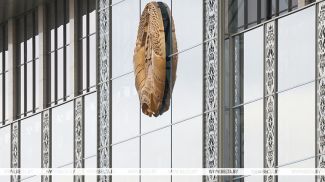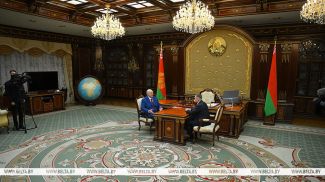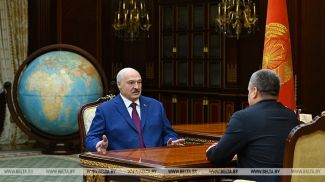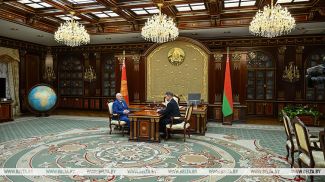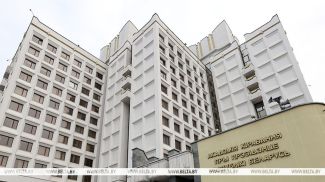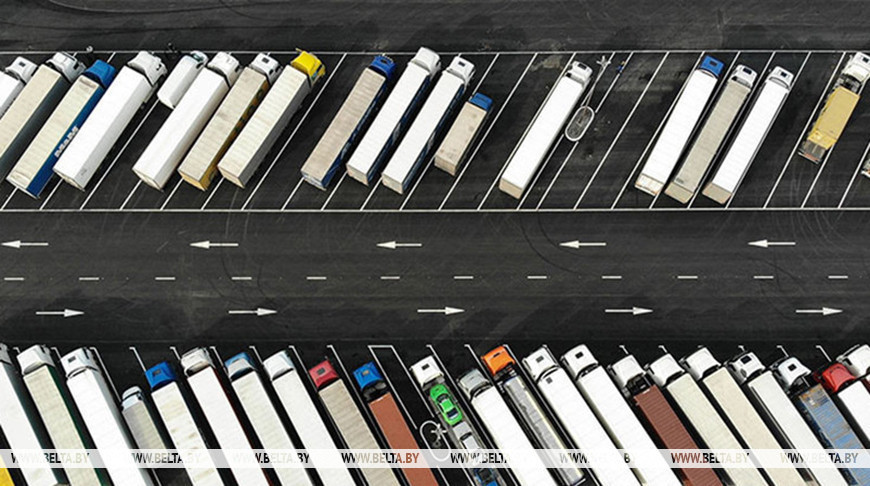
MINSK, 31 July (BelTA) – President Aleksandr Lukashenko identified systemic shortcomings and concerning trends in Belarus' foreign trade as he addressed a meeting with the heads of Belarus’ diplomatic missions in Minsk on 31 July, BelTA has learned.
The president emphasized that Belarus produces goods of reliable quality at fair prices that people need. This ensures lasting demand. “But we must maintain tactical flexibility and continually modernize our foreign trade policies,” he stressed.
Aleksandr Lukashenko cited key figures: In the most challenging period (2020-2023), Belarus posted its best foreign trade performance. In 2022 Belarus had a record high trade surplus of $4.3 billion, which was nearly 6% of GDP."
"Then things started slipping... Last year we were already over $1 billion in the red, and in just five months this year - nearly $800 million down. I want our new and old government members to keep this firmly in mind," the president emphasized.
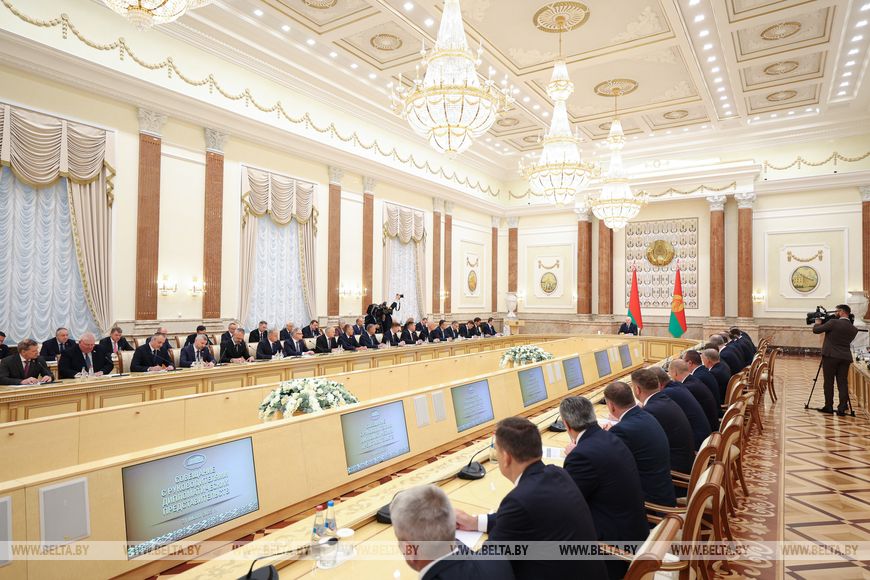
The head of state noted that foreign counterparties are exploiting every opportunity to make money, both on supplying goods to Belarus and on purchasing Belarusian products.
Aleksandr Lukashenko also raised concerns about services exports: “Why did our merchandise export grow by 40% in 2024 over 2020 while services – only by 12%? We cannot attribute this solely to IT, especially since computer services export has rebounded this year (up by $71 million).”
Specific instructions were given to the transport sector. “The EU closed its market to our carriers? Now we must deliver the same goods much farther - to Russia, China, Africa!” the head of state stated. “The government must finally identify the core issue: Are our logistics companies unable to set competitive rates, or are our managers still selling ‘from the factory gate’ and using the services of foreign carriers?”
"We must make maximum foreign currency earnings across the entire supply chain - from transport and insurance services to packaging and small-scale wholesale. Please draw up concrete measures to shift toward exporting on more distant delivery terms maximizing the use of our logistics providers and carriers where profitable. Every kopeck counts now," the Belarusian leader said.
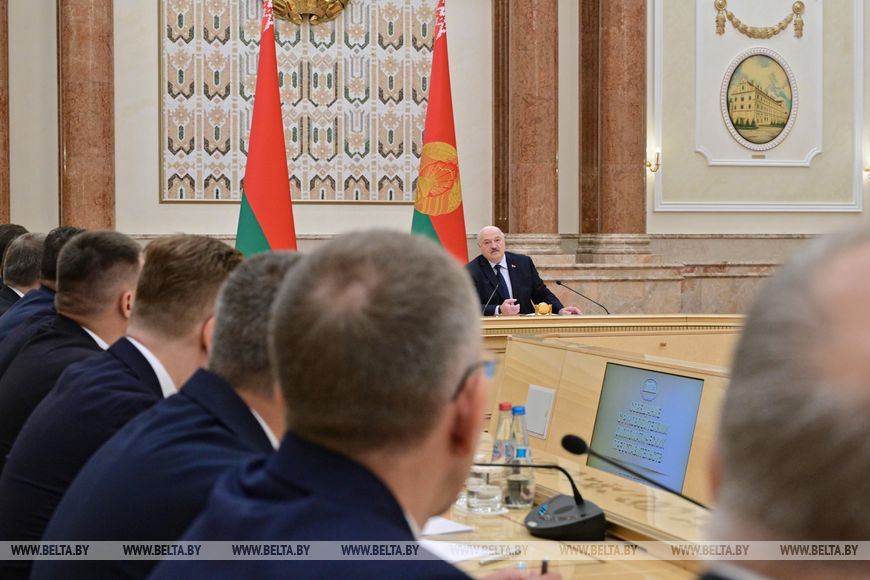
Aleksandr Lukashenko also noted that export diversification is not optimal both industry-wise and geographically. While some industries have made clear progress (mechanical engineering exports went up by $3 billion over three years, food products by nearly $2 billion, and light industry by approximately $300 million), other key sectors suffered significant losses (fuel and energy commodities are down $2 billion), chemical products - $1 billion, wood processing - $1 billion, and metal goods are down $250 million).
"We have heard the explanations. But why has not the government yet implemented effective measures to redirect trade flows? If we cannot manage this, then we must change our product range and restructure the manufacturing. Apply new financial instruments (we have the funds for this). Submit concrete proposals soon!" the head of state demanded.
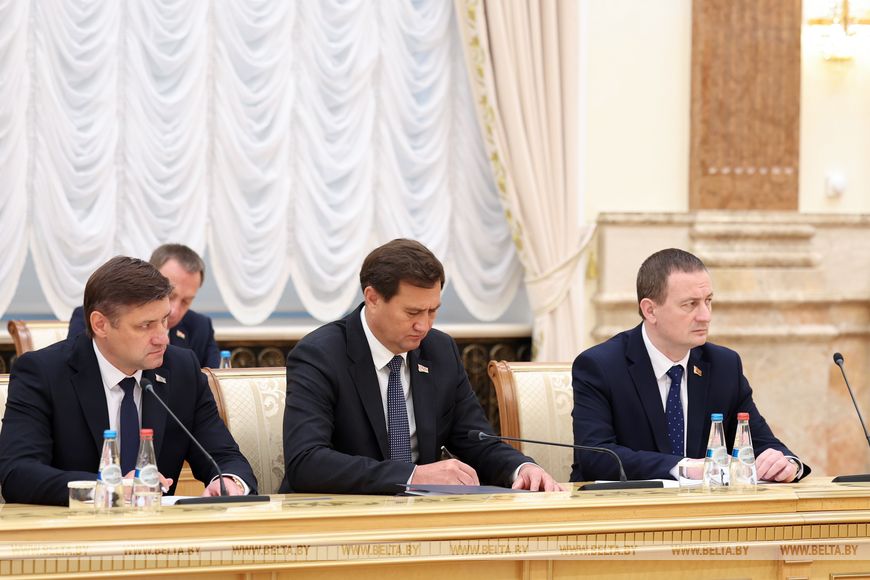
The president emphasized that Belarus produces goods of reliable quality at fair prices that people need. This ensures lasting demand. “But we must maintain tactical flexibility and continually modernize our foreign trade policies,” he stressed.
Aleksandr Lukashenko cited key figures: In the most challenging period (2020-2023), Belarus posted its best foreign trade performance. In 2022 Belarus had a record high trade surplus of $4.3 billion, which was nearly 6% of GDP."
"Then things started slipping... Last year we were already over $1 billion in the red, and in just five months this year - nearly $800 million down. I want our new and old government members to keep this firmly in mind," the president emphasized.

Meanwhile, imports continue to rise. In this regard Aleksandr Lukashenko challenged the government: “So our companies face warehouse, payment and logistics hurdles only when exporting but none of these issues arise when importing foreign goods? Or is it that only private firms handle imports while state enterprises export halfheartedly without breaking a sweat?”
The head of state noted that foreign counterparties are exploiting every opportunity to make money, both on supplying goods to Belarus and on purchasing Belarusian products.
Aleksandr Lukashenko also raised concerns about services exports: “Why did our merchandise export grow by 40% in 2024 over 2020 while services – only by 12%? We cannot attribute this solely to IT, especially since computer services export has rebounded this year (up by $71 million).”
Specific instructions were given to the transport sector. “The EU closed its market to our carriers? Now we must deliver the same goods much farther - to Russia, China, Africa!” the head of state stated. “The government must finally identify the core issue: Are our logistics companies unable to set competitive rates, or are our managers still selling ‘from the factory gate’ and using the services of foreign carriers?”
"We must make maximum foreign currency earnings across the entire supply chain - from transport and insurance services to packaging and small-scale wholesale. Please draw up concrete measures to shift toward exporting on more distant delivery terms maximizing the use of our logistics providers and carriers where profitable. Every kopeck counts now," the Belarusian leader said.

Aleksandr Lukashenko also noted that export diversification is not optimal both industry-wise and geographically. While some industries have made clear progress (mechanical engineering exports went up by $3 billion over three years, food products by nearly $2 billion, and light industry by approximately $300 million), other key sectors suffered significant losses (fuel and energy commodities are down $2 billion), chemical products - $1 billion, wood processing - $1 billion, and metal goods are down $250 million).
"We have heard the explanations. But why has not the government yet implemented effective measures to redirect trade flows? If we cannot manage this, then we must change our product range and restructure the manufacturing. Apply new financial instruments (we have the funds for this). Submit concrete proposals soon!" the head of state demanded.





